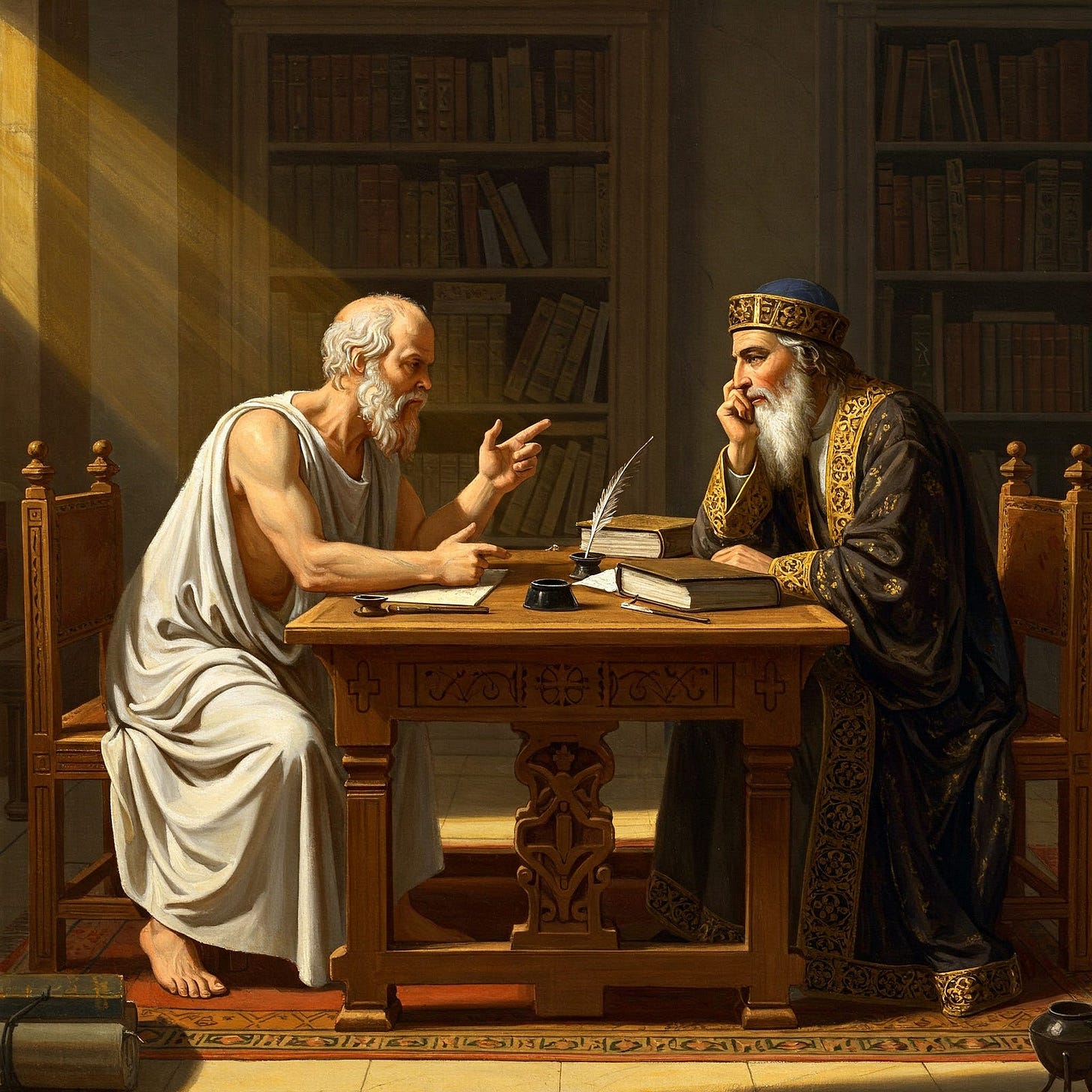
What is Western Civilization and where did it come from?
This is the question I have been seeking answers to which has guided much of my reading. Today, those answers are coming from Jacob Howland’s book, Plato and the Talmud.
I first heard of the idea that Western Civilization is a combination of Athens and Jerusalem from Ben Shapiro in his book The Right Side of History. It made some sense to me then but the more I dig, the more sense it makes. There is a resistance for some people to understand and even admit that much of our culture is Biblically derived, but I don’t see any way around it.
At this point, I don’t think anyone can understand Western Civilization without an understanding of the Bible in the same way that we would expect them to understand Greek philosophy. And when someone tries to convince me otherwise, I take it as evidence that they don’t understand our civilization and will not until they get over that hump.
What Howland is doing in this book is comparing those two distinct lines of thought and describing their similarities and their differences.
One major difference which I have suspected is a key ingredient in the Bible missing from Greek thought was hinted at on page seven:
“The philosophers recognize no revealed teaching, but they have the guidance of phases, and in their own view this sets them apart as the few from the many.”
For the Greek philosophers, they reached wisdom through reason and dialogue, but for the Jews they had the revealed wisdom of God which they used reason to understand. It’s a seemingly trivial difference, but important.
There is another key thing I picked up from this line at the heart of Biblical thought but nowhere I have seen in Greek thought. The philosophers had something they thought differentiated them as “the few from the many.”
While there is a very well developed and articulated sense of human equality and a direct relationship between all humans and God in the Bible, Greek thought is missing that and differentiates the value of human beings based on their intellect. Even in shaping the body politic, in Plato’s Republic, a key feature of the perfected society was a tiered system where some would rule over others as a type of intellectual elite. They even had a restriction on and a subverting of religion through the censorship of their Homeric poetry.
Some might point to the fact that the Greeks had democracy, Pericles being the “father of democracy”, however that ability and right to vote was restricted to very few men. It was a step away from the tyranny of one ruler, but it was not based on any idea of equality rooted in a direct relationship with God that made every human being divine by nature.
Understanding that key ingredient is vital to understanding how humanity is viewed in the West, and why losing Jerusalem would be like losing the trunk of a tree that has produced the fruit we depend on for liberty.


